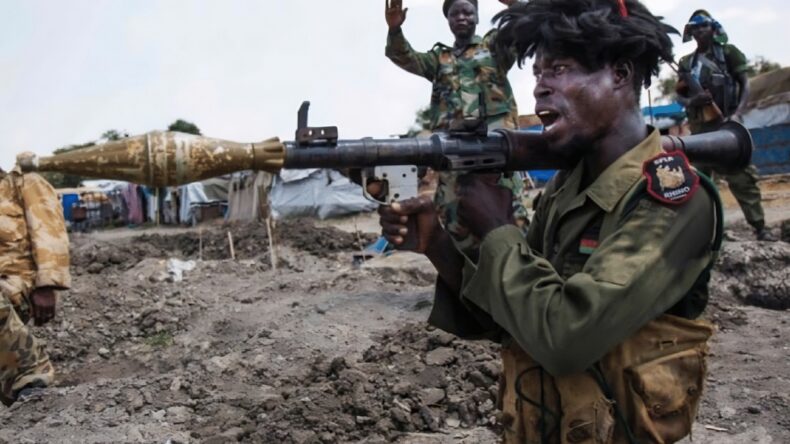Sudan’s Army Appears to Gain Upper Hand in Bloody Power Struggle

Sudan’s transitional government faced an uncertain future after a bloody power struggle between rival paramilitary groups. On Saturday, fighting broke out between the army loyal to General Abdel Fattah al-Burhan and the paramilitary RSF (RSF), headed by General Mohamed Hamdan Dagalo, also known as Hemedti. A dispute arose due to the disagreement about merging the RSF with the military as a component of the shift toward democratic governance, leading to the conflict.

Air strikes by the army appeared to have the upper hand over the RSF by Sunday, but the fighting has already killed 97 civilians and scores of fighters. The U.N. World Food Programme said it had halted operations in hunger-stricken areas of Sudan after three Sudanese employees were killed during fighting in North Darfur, and a UN WFP plane was hit during a strike at Khartoum airport.

The attempts to halt the hostilities have intensified, with Egypt suggesting mediation and the regional African group Intergovernmental Authority on Development planning to dispatch the presidents of Kenya, South Sudan, and Djibouti to reconcile the conflicting Sudanese groups. Despite this, numerous witnesses and residents remain anxious about the thousands of heavily armed RSF members stationed in Khartoum and other cities, without any governing body capable of regulating them.
The Outbreak of Fighting

Both al-Burhan and Hemedti had earlier joined forces to overthrow Omar Hassan al-Bashir in 2019. However, the recent outbreak of fighting was the first since then. The disagreement over the integration of the RSF into the military had postponed the signing of an internationally backed agreement with political parties on a transition to democracy following a 2021 military coup.

The RSF, which has been accused of widespread abuses, was initially set up by Bashir to fight rebel groups. Since his overthrow, the RSF has been operating independently of the army, and the attempt to merge the two groups under a civilian-led government has been the main point of contention.

A humanitarian truce agreed upon by both sides did not last long, with residents reporting the sound of artillery and warplanes in Bahri. However, the army appeared to have renewed air strikes on RSF bases in Omdurman and put RSF fighters to flight.
Efforts to End the Violence

Despite appeals from the United States, China, Russia, Egypt, Saudi Arabia, the U.N. Security Council, the European Union, and the African Union for a swift end to the hostilities that could further destabilize the already volatile region, the attempts to quell the violence have so far been ineffective.

Although the army has made gains against the RSF, the situation remains highly volatile, with fears that the conflict could plunge Sudan into widespread conflict, as it struggles with economic breakdown and tribal violence. This could derail efforts to move toward elections.
Impact on the Sudanese Civilian Population

The violence has taken a significant toll on the civilian population. The Sudanese Doctors’ Union reported that at least 97 civilians had been killed and 365 injured. The doctors’ committee refrained from disclosing the exact number of military personnel killed due to a shortage of first-hand information from hospitals. However, they did confirm that numerous military personnel lost their lives.

Residents are also concerned about the thousands of heavily armed RSF members who are deployed inside neighborhoods of Khartoum and other cities, with no authority able to control them. Many are scared and have not slept for 24 hours because of the noise and the house shaking. They are worried about running out of water, food, and medicine for their family members.

While the army appears to have gained the upper hand in the conflict, the situation remains volatile and efforts by neighboring countries and regional bodies to end the violence are intensifying. The ongoing conflict threatens to worsen instability in an already volatile region and could derail efforts to move toward democracy and economic stability in Sudan.












